This 2-disc “Limited Edition” Blu-ray set from Eureka Entertainment is currently available for purchase.
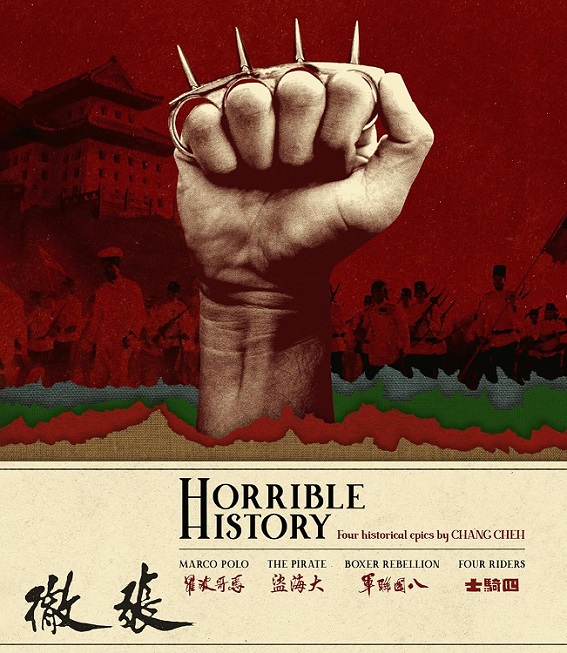
Recently, Eureka Entertainment have really been on a roll, releasing a great many cult titles from around the world, often with a focus on Hong Kong cinema. Just last month, they put out the fascinating set Horrible History: Four Historical Epics from Chang Cheh. These large-scale Shaw Brothers productions attempted to combine martial arts and real tales about China’s past. They boasted more stars and elaborate plotlines detailing important, and sometimes lesser-known stories (at least, to western audiences). Some of these efforts were big hits, while others flopped. This set contains four interesting titles produced between 1972 and 1976 that will be of interest to anyone who enjoys a twist on typical martial arts fare.
This 2-disc Blu-ray set does impress with some great transfers, informative commentary tracks and a featurette on both discs dealing with the real events being depicted, as well as how they were adapted to the big screen.
The first movie in the package is Marco Polo (1975), which for this writer is the weakest title. That’s not to say that the film isn’t interesting, simply that the three other movies in the set appealed more to this reviewer. The story is based around the notable 13th century Italian explorer, who was responsible for establishing trade routes between Europe and Asia. As it turns out, in the process Polo befriended and served for China Emperor Kublai Khan. While Khan managed to unite his country and expand its borders, he favored Mongols over the Chinese population, taxing them heavily. His practices were heavily influenced by outsiders like Polo, which caused bad blood across the region.
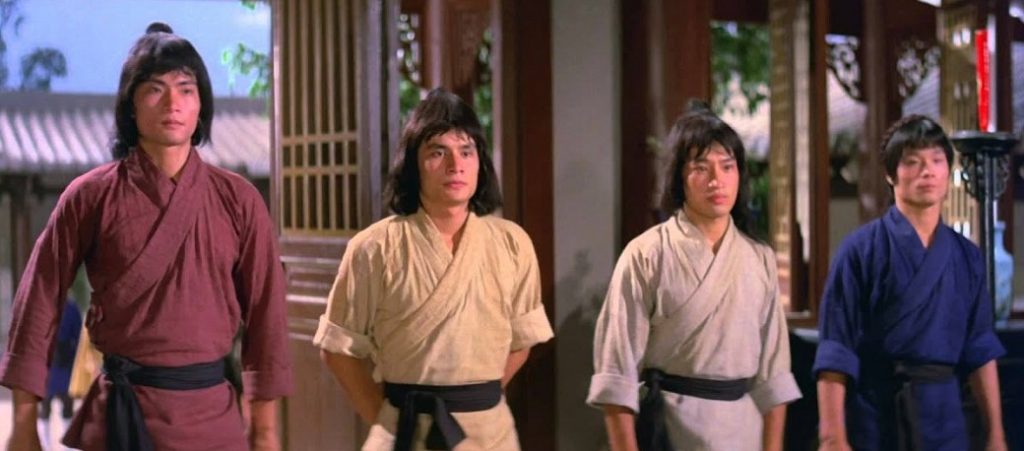
This tale follows Marco Polo (Richard Harrison) visiting employer, Emperor Kublai Khan (Tung-Chun Li) and telling him about his latest exploits. When a local fails in attempting to kill the emperor, his brothers (Sheng Fu, Chi Kuan-Chun, Bruce Tong Yim-Chaan and Phillip Kwok Chun-Fung) unite and try to finish the mission. But to succeed, they must train rigorously. Polo and several fighters attempt to stop the team, but the heroes eventually confront the explorer and convince him that their cause is just. Polo tries to offer advice as they make their final move on Khan.
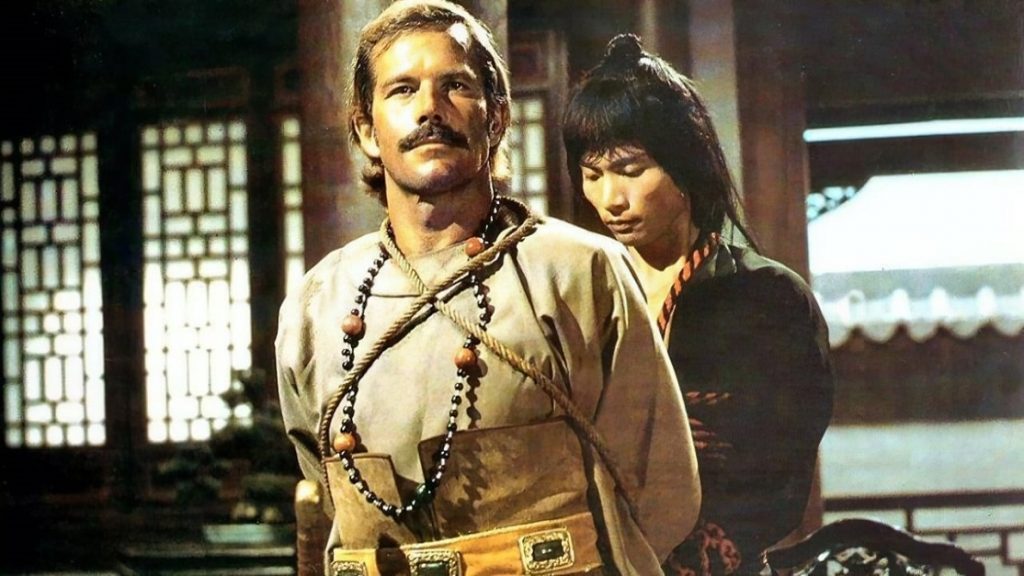
The film is a bit slow moving, taking a long time for the central conflict to develop. Despite being the title character, Polo disappears for significant portions of the story. When he appears, he doesn’t do much but sneer at the heroes and watch events from the sidelines, until eventually being made to understand their frustrations. Still, when there is action, it is well-shot and exciting to watch. This is a big epic and there are action scenes featuring a large number of fighting extras. It does suffer from some pacing issues, but has some dynamic moments.
The image is fairly clean and the commentary track from action cinema experts Mike Leeder and Arne Venema is informative and entertaining. They’re clearly having a good time talking about the picture, while also noting its issues and some of the more confusing story elements. If you don’t know a lot about this era, you’ll get plenty of Polo and Khan trivia, as well as tidbits about the cast and crew.
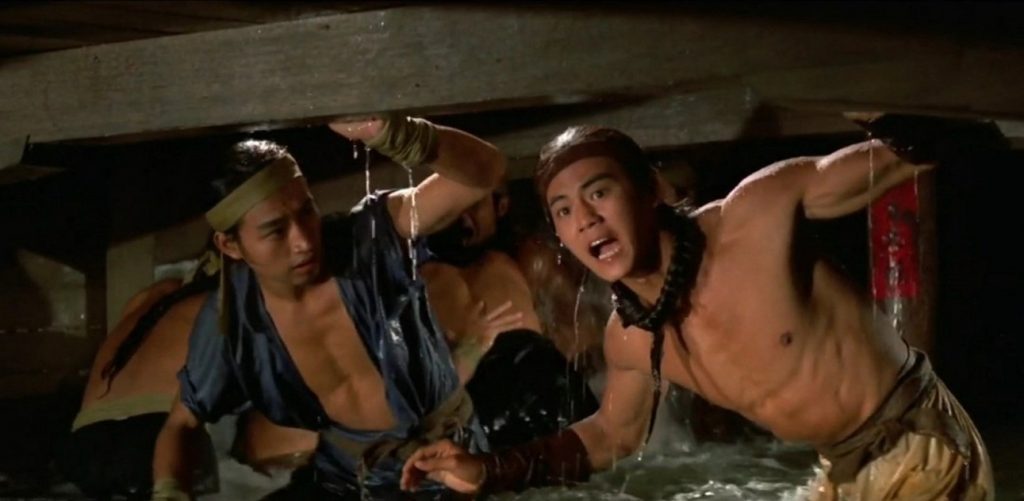
For me, the most pleasant surprise in the set is the second film, The Pirate (1973). This is a tale about famous 18th century Chinese swashbuckler Cheung Po Tsai. He was kidnapped as a young boy by a pirate named Cheng, but impressed his captor and quickly rose up the buccaneer ranks, becoming a major figure wanted by every government figure on the high seas.
The film begins with Cheung Po Tsai (Ti Lung) and his crew raiding a vessel and stealing an incredible bounty of foreign coins. Unfortunately, their ship is damaged in the process, forcing them to dock and get repairs done. As this occurs, some of his crew can’t help but take some doubloons and head into town for some fun. The hero also notes the terrible treatment of locals by the government and begins to consider helping them out. Sinister merchant Xiang You-lin (Tin Ching) and many others soon recognize the pirates and try to hunt them for bounties. Additionally, the fearsome General Wu Yee (David Chiang) also sets his sights on the protagonist. It all leads to an elaborate battle between all characters.
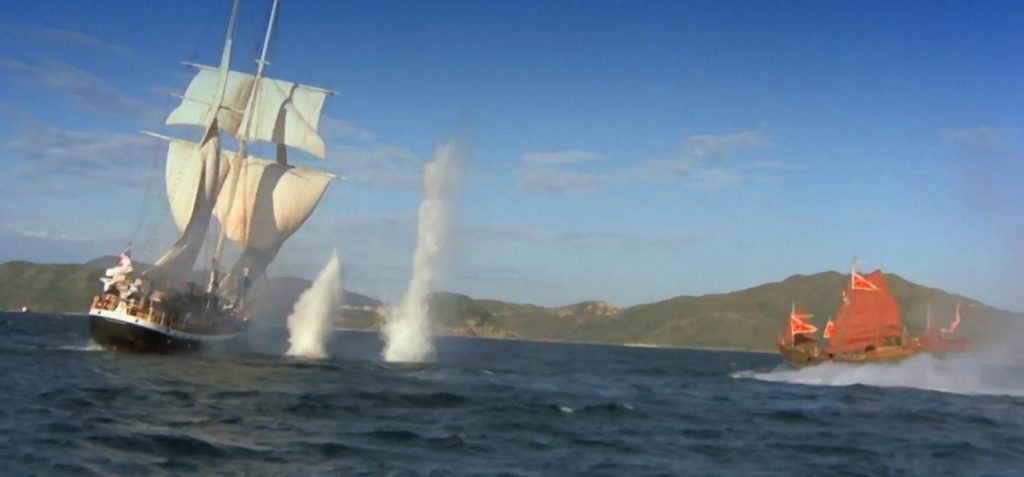
In some respects, this is a traditional pirate tale that takes great liberties with its subject. But boy, is it a ton of fun. The cinematography is gorgeous. Even though it was shot near Hong Kong, the locations and sea-set scenes are stunning to behold. It’s fun to see the filmmakers deliver swordplay and martial arts together and there are some creative battles to the death. The interplay between Cheung Po Tsai and General Wu Yee is extremely entertaining as well. While enemies, both men respect each other, leading to a showdown in which it is hard to predict the winner. Tonally, this is the lightest movie in the set, but it’s a great time. The Blu-ray disc image is wonderful as well, with crisp, bright tropical locales and a large ship battle scenes really wowing.
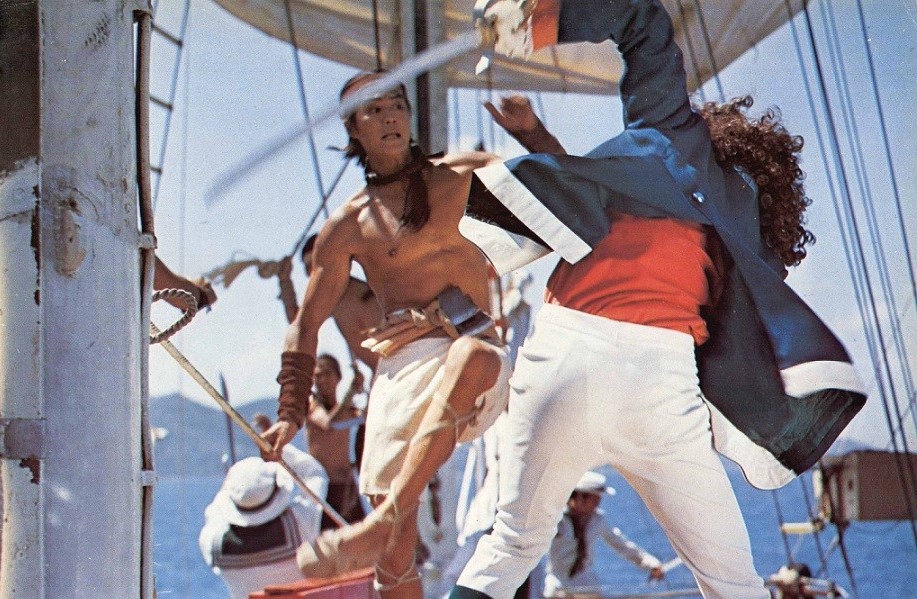
The East Asian film expert commentary from Frank Djeng and Michael Worth provides a lot of background information about the movie. It seems that this movie wasn’t well received during its original run and tanked at the box-office (hence, no sequels or pirate/martial arts copycats followed this picture). The discussion also notes one strange plot hole (involving a ship that must’ve sunk off camera), but one also gets the impression that the speakers are quite impressed with the production.
Additionally, this first disc also contains a great video essay on Chang Cheh’s historical films by Jonathan Clements, author of A Brief History of China. He gives important background information about all of these historical epics that is very enlightening to viewers like myself who are unfamiliar with these features.
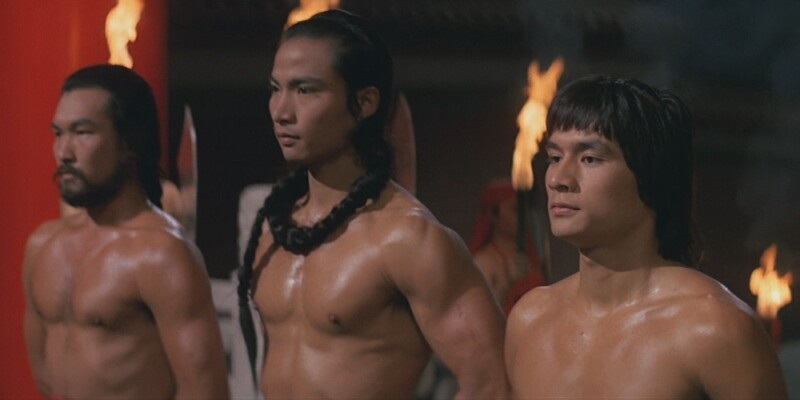
Blu-ray disc 2 begins with the most famous film of the set, Boxer Rebellion (1976). This effort boasts a lot of political intrigue as well as action as it depicts the 1899-1901 uprising. In this tale, Empress Dowager (Li Hua Li) is in control of China, but is falling under the influence of foreign nations and their representatives. One such figure is the German General Waldersee (Richard Harrison). With many average citizens being taken advantage of and/or slaughtered by invaders, three brothers with different personalities and motives (Chi Kuan-Chun Chi, Sheng Fu and Leung Ka-Yan) try to inspire their countrymen to fight back.
As mentioned, this is the most popular title in the set, and it’s easy to see why. A couple of the main characters are really likable, particularly co-star Sheng Fu whose character has a sense of humor. There’s a great deal of drama and intrigue as the heroes try to build their own force and train them to fight, using some unusual techniques. There’s also plenty of conflict, between the trio, as well as with the empress (whom they try to sway to their cause) and the villainous invaders from various nations. Even Waldersee makes an impression as one of the villains who, again, isn’t played as a one-note baddie. This is a bleaker story and a long movie at 144 minutes, but it moves at a reasonable clip and the brutal fights are excitingly staged.
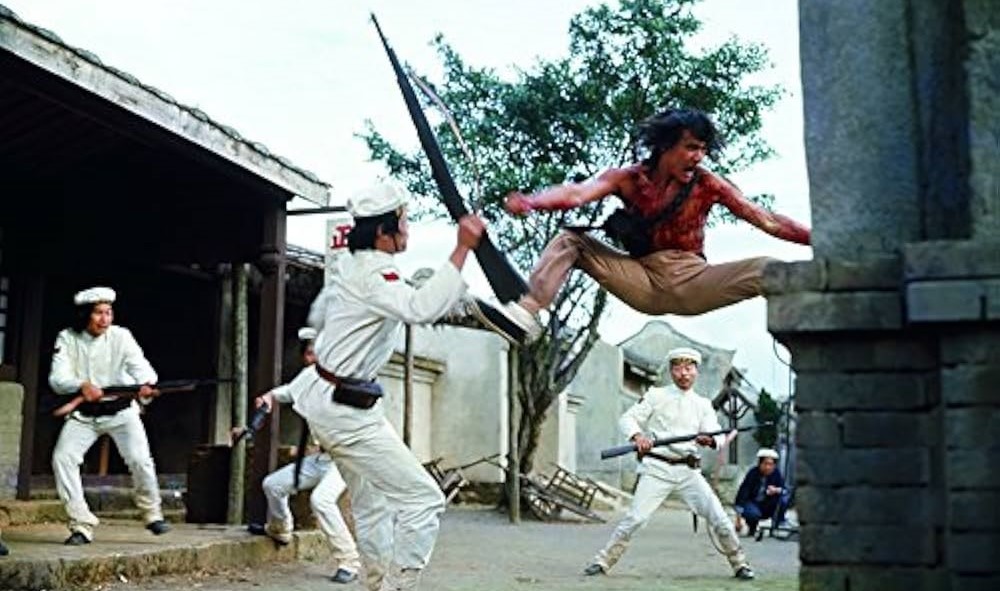
Once again, this is a huge film with a big cast that looks impressive on the Blu-ray. There are a few massive battles and the high-definition presentation is very good. Once again, the film comes with a Mike Leeder and Arne Venema commentary that offers plenty of tidbits about the movie and history behind the uprising. Curiously enough, they explain more about Empress Dowager and her isolated upbringing in the Forbidden City. The leader had no understanding of the plight of her subjects, which partly led to the rebellion. Curiously enough, upon her death, she made sure that a child, Puyi, eventually took the throne. He became the final Emperor of China (and the subject of the 1987 Best Picture winning film, The Last Emperor).
On a lighter note, the speakers also relay a remarkable story about co-star Richard Harrison. The actor was getting a lot of work in Europe and Asia in the early 60s, and they state that his onscreen charisma resulted in an offer from Italian filmmaker Sergio Leone to star in A Fistful of Dollars. Apparently, Harrison wasn’t interested and suggested the director contact an acquaintance of his who needed the work… Clint Eastwood. This and many other tales make for a fun listen. The other main bonus on the disc is the featurette on the actual Boxer Rebellion. A historian talks about what really happened and the liberties the film takes with real events.
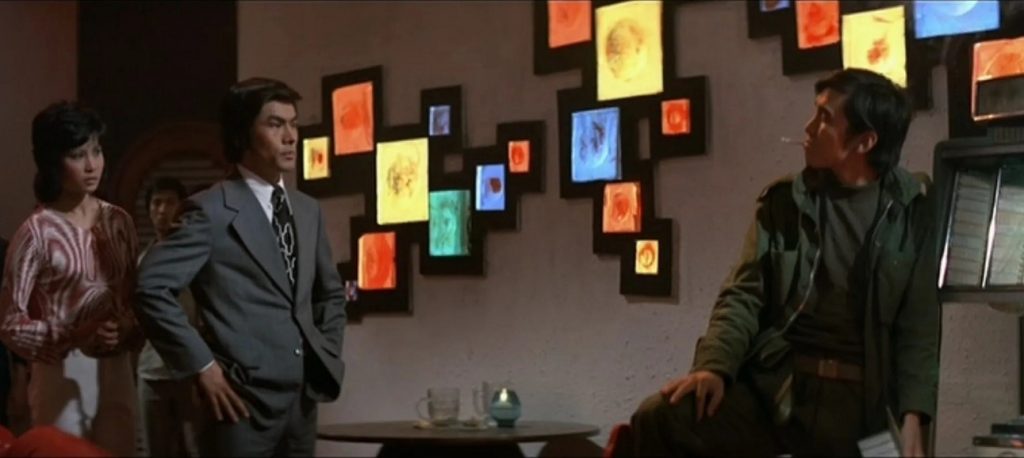
The final movie here is Four Riders (1972), a feature set in the 1950s after the close of the Korean War. This stylish film takes place in Seoul and deals with a group of Chinese soldiers uncertain of their future after the conflict. They spend time in a nightclub run by a drug-runner Boss Hawke (Andre Maquis) and managed by Lei Tai (Yasuaki Kurata), who attempts to recruit the troubled warriors into his organization. When soldier Feng Hsieh (Ti Lung) refuses the offer and is framed for murder, three of his pals, including alcoholic veteran Chin Yi (David Chiang) try to stand up for him against the organization. It leads to a brutal and tragic confrontation.
This unusual effort looks fantastic, with plenty of scenes set in neon-lit clubs. The fights are particularly brutal and often use hand-held cameras to emphasize the rough and nasty tone. The final showdown at a gym and the club is memorable and the film, while imperfect, does effectively show how war has affected soldiers in deeply personal ways. Once again, Chiang makes a strong impression as the most skilled and unpredictable member of the group. The high-definition image quality is strong here and the colors really pop.
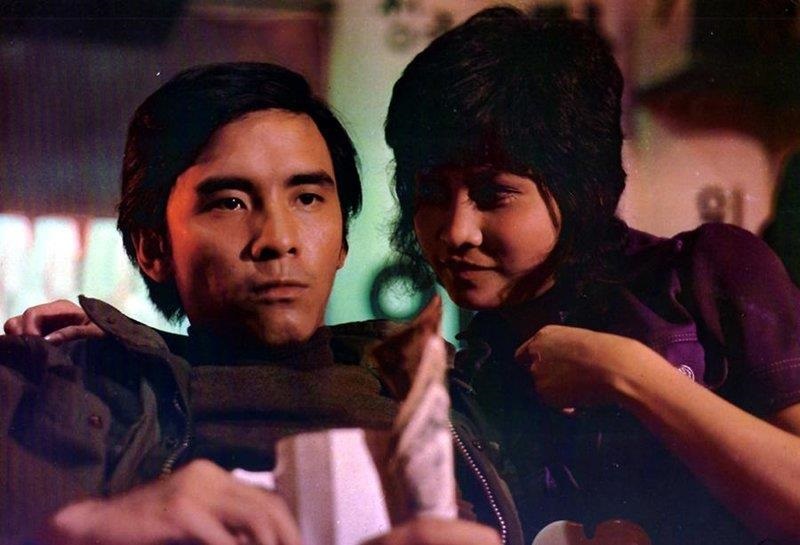
The commentary from Frank Djeng and Michael Worth is, again, very informative and entertaining, giving plenty of background details about the movie and noting some of the interesting camera set-ups and camera techniques.
I was familiar with Boxer Rebellion, but had never even heard of the other three pictures in this collection. It makes Horrible History: Four Historical Epics from Chang Cheh a really entertaining and enlightening journey into some lesser-known but high-quality features. I had a great time watching The Pirate and Four Riders, which also struck a nerve with this reviewer. These efforts are given very strong visual upgrades and are highly recommended to anyone who enjoys Hong Kong or action cinema with an eye on historic eras.


